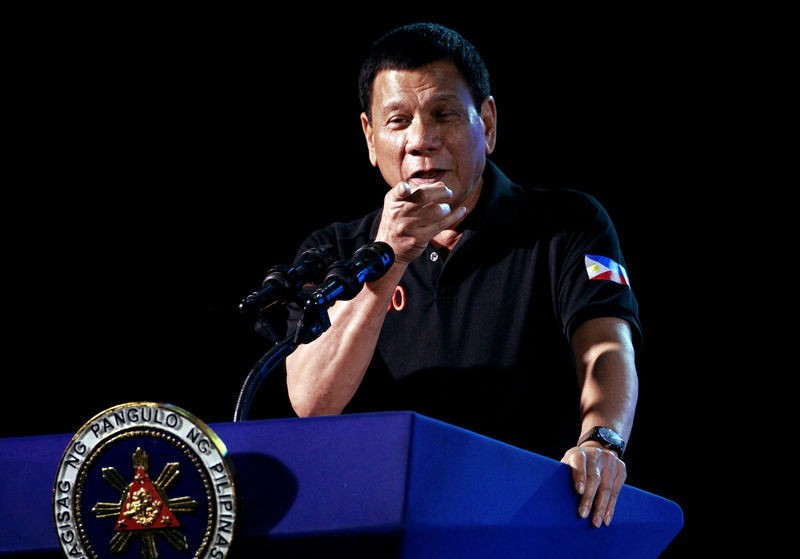MANILA (Reuters) - Philippine President Rodrigo Duterte on Sunday rejected a demand by Maoist-led rebels to free more prisoners as part of a ceasefire deal, saying he had made enough concessions and was willing to let peace talks collapse if necessary.
For decades the government and the communists' political arm, National Democratic Front, have held intermittent peace negotiations but without success. The release of political prisoners has proved a major stumbling block.
Before the resumption of peace negotiations in Oslo in August, four years after the collapse of the last attempt, Duterte let 22 rebel leaders out on bail, including two senior guerrilla commanders.
Last month, he also freed four elderly and sick prisoners on humanitarian grounds.
But rebel leaders immediately demanded the release of 130 more rebels, a call Duterte has ignored until now.
Since the rebellion erupted nearly five decades ago, it has killed about 40,000 people and stunted growth in resource-rich rural areas of the Philippines. The rebels' armed wing, New People's Army, is active in almost all but the Muslim majority provinces, and are particularly strong in the mining areas in the southern island of Mindanao.
"I wanted them to start the talks but they want me to free 130 more, so I told them, no, I cannot," Duterte told soldiers at an army base north of Manila, close to where NPA first emerged.
"As a matter of fact, I conceded too much too soon. Now, it's up to them if they will terminate the peace talks. Let them terminate it. I have freed their leaders, what more do you ask of us? I am running out of cards."
Duterte said violence between the two sides has declined in the last six months. The two sides have held two rounds of talks since August and plan to meet again early next year with the aim of agreeing on a set of political, economic and social reforms to address the rebellion within 12 months.
The rebels want farmlands to be distributed to landless farmers, the nationalisation of industries and to share political power with the government.
Duterte, former mayor of Davao, a city that was once seen as a breeding ground for rebels, told soldiers at the base that he knew they were hurting from his decision to re-start peace talks and free top communist rebels, but that he was determined to end the conflict.

About 500 people suspected to be rebels are in jail, which include two men who were convicted of killing the U.S. military adviser, Colonel James Rowe, in 1989.